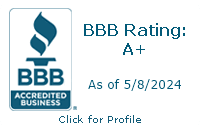"Delayed Onset Muscle Soreness" – How does DOMS translate to performance in the workplace?


Despite my regular presence in the gym for the past 15 years, I recently heard a new term – DOMS. DOMS (pronounced "domes") stands for "Delayed Onset Muscle Soreness" which Wikipedia describes as "the pain and stiffness felt in muscles several hours to days after unaccustomed or strenuous exercise."
During all those years in the gym, I'd mainly focused on strength and cardio exercises, with the occasional stretch – however, I recently began working with a second trainer to focus specifically on posture, with a lot of stretching to open up my chest and lower body. Even though I had strong muscles, they were not strong enough to overcome my poor posture at work – typically, sitting and hunched over a computer.
The stretching initially made me very sore, since I was elongating muscles tightened by years of strength exercises and desk work. Hence, DOMS.
An Analogy Comes to Mind
Shortly after I heard about DOMS, my mind connected the dots – muscles provide a wonderful analogy to peoples' performance in the workplace! Here's the connection.
- Muscle strength is similar to workplace productivity.
- Muscle flexibility is similar to workplace adaptability.
Here's the doodle I drew to represent this:

For many years, my muscles and my workplace performance were High Strength/Productivity | Low Flexibility/Adaptability – both were in the "Charlie" quadrant
- My muscles were strong, yet lacked flexibility.
- My performance was strong, yet was frequently heavily rehearsed or scripted, and thus lacked natural adaptability, especially in interpersonal encounters. To put it bluntly, I was not very comfortable in such encounters, and thus overly planned my words and actions – my adaptability was low.
High Strength, Low Flexibility
By working on stretching with a second trainer for 8 weeks, my muscles have become more flexible, allowing me to improve my posture – and best of all, my height has increased one-quarter inch between my annual wellness visits!Compared to ingrained behaviors, muscles are easy! To add flexibility to my workplace performance, I've been working with several coaches for over a dozen years.To keep me on my toes and ensure I hit my goals, my first coach and I created "Todd's Results" to PUBLICLY report on several coaching-related goals each month. For several years, I had to stretch to meet these goals – and the goals were gradually increased every 3 to 6 months. Eventually, I became much more comfortable in interpersonal dealings – so much so that I now rarely jot down any planned comments beforehand.
What I've Seen in the Workplace
Over the years, I've seen staff or clients fall into all of these quadrants.
- Low Productivity, Low Adaptability – Even though the skills are present, an "Andy" neither hones his skills nor deviates from the job aid provided him ... even if he's been told the job aid might be outdated and should not be taken as gospel. I've had a couple Andys on board, and they did not last long.
- Low Productivity, High Adaptability – A "Betty" is good at switching from task to task, yet the lack of skill mastery limits her upward mobility. Because there is no foundation, there can be no growth. Betty makes a good office assistant – and will never progress past that role.
- High Productivity, Low Adaptability – While a "Charlie" performs his base functions well, he never pushes his boundaries or challenges himself. Special projects on a quarterly performance plan not only remain undone – they rarely ever get started, despite ample opportunity. Charlie is a very good performer, yet will NEVER be an outstanding performer – which is fine, until the business environment changes, and Charlie cannot adapt.
- High Productivity, High Adaptability – Ah, "Diane"! She is the kind of person I love to have on staff. Diane not only gets her work done, she comes to me looking for additional work – and actively seeks to take work away from me! Diane typically has a long tenure with me and, if needed, will NEVER have a problem finding a job. In fact, Diane is the ONLY type of person I actively try to keep from leaving.
"Can Change" vs "Want to Change"
What keeps people from developing into a "Diane"? Attitude. You see, everyone CAN grow and develop in the workplace, yet frequently do not WANT to do so. In fact, the person may say to himself, "I truly WANT to change, yet I CANNOT change because I'm too [fill in the blank]." Said enough times to oneself, the person will actually BELIEVE this and even tell his manager, "Boss, I do WANT to change – I just CANNOT do it."Sometimes a manager – let's call her "Eve" – will buy into this and tolerate Charlie never getting to his special projects. (Confession – I've been guilty of this myself several times.) By choosing to NOT have a MILDLY uncomfortable conversation with Charlie to hold him accountable for NOT completing his special projects, Eve kicks the can down the road, until that special project becomes critical, or the business is hit with an unexpected change.When a drastic change actually hits, Eve is forced to look at her staff, then decide who to keep and who to let go. At this point, Eve MUST have an EXTREMELY uncomfortable conversation with Charlie and break the bad news to him.
DOMS – A New Workplace Meaning
I recently had lunch with a friend, and discussed this idea with her. Over the last few years, she'd worked at two organizations where the chief executive or top managers were like "Eve" – despite the need for changes, the uncomfortable discussions never occurred, eventually resulting in major upheavals at both organizations. This caused HER to connect the dots and exclaim, "I've got it! DOMS can also mean Decrease Of Marketable Skills!" She excitedly continued, saying "In today's workplace, if you're not BOTH productive AND adaptable, you might as well stamp anexpiration dateon your forehead – because you WILL be out of a job at some point. "Wow! I couldn't have said it better myself! Andy, Betty, and Charlie ALL have an expiration date on them – they have Workplace DOMS.
How About You?
What quadrant best describes you? Might you have Workplace DOMS and not even know it? If you're not productive and adaptable – strong and flexible – you might have DOMS. If you do, don't deny it – better to accept the diagnosis now and quickly begin treatment, or otherwise you could end up on the wrong side of an extremely uncomfortable conversation.
Sincerely,
![]()
Todd L. Herman





